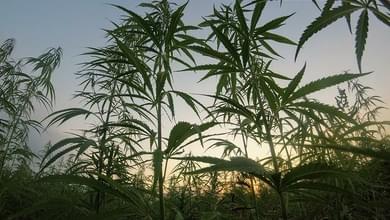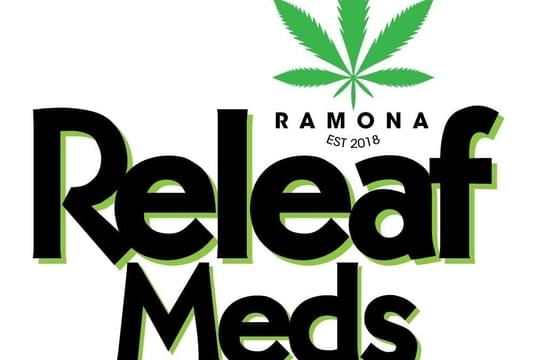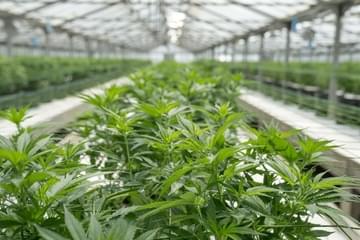
Can Cannabis Save the Planet? Hemp Alternatives You Should Know About
Published on 9/4/20
Updated Jun 7, 2022
One primary concern that has been seemingly pushed aside in today's trying times has been the issue of climate change. If global emissions continue at their present rate, the whole planet will feel the impacts of climate change. Sea levels are expected to rise by an average of 12 inches over the next 30 years, crop yields in the global South will decline by 10 percent over the next 25 years, and the average temperature in the U.S. alone is expected to increase by several degrees, which will have a catastrophic impact by worsening natural disasters like wildfires out West and hurricanes in the South and Southeast.
In attempts to mitigate the adverse effects on the planet, there has been a massive effort to find viable alternatives to fossil fuels to create a sustainable future before it's too late. With more well-known options like electric cars, renewable energy like solar and wind power, and making sure we're recycling and supporting sustainable and carbon-neutral companies, cannabis can play a role! That's right, folks. The cannabis plant has the potential to help save the future of the planet. Hemp, a versatile plant in the cannabis family, is an astoundingly eco-friendly alternative to traditional products and materials.
What is Hemp?

Before we go in-depth on how and what hemp can replace in today's modern consumer landscape, we should define some key terms. So with that in mind, let's first break down exactly what hemp is and how it's different from your average cannabis plant.
Hemp is one of the first cultivated crops globally, originating in Central Asia and dating back to 8000 BC. It is a part of the cannabis family, specifically the cannabis sativa plant, containing less than 0.3 percent THC. Unfortunately, because it is grouped within the cannabis species, people usually wrongly equate hemp with getting high.
This is a major, long disproven misconception that has been discredited and slowed the progress of what hemp can do for nutrition and the planet. Thankfully, due to some factors, we'll cover later in this piece, hemp is considered "industrial" and is legal to buy from your average health food or drug store. A big part of that near-universal acceptance is because every aspect of the plant, from the seeds to the roots, can be utilized. That means that the eco-friendly possibilities of what can be made from hemp are pretty much endless, including rope, clothing, linens, batteries, and bioplastics, just to name a few!
The Volatile History of Hemp in America
To understand the extent of the damage done by the misinformation spread around about hemp, we'll need to dig a little deeper into the volatile and complicated past of industrial hemp in the U.S.
The United States introduced hemp back in 1606, producing it for lamp fuel and paper products. Soon enough, it was widely considered a staple crop in America. This continued until the Marijuana Tax Act of 1937 imposed a heavy sales tax on all hemp-related products, causing a massive decline in the hemp industry due to the misguided stigma surrounding it. In 1942, however, things changed drastically for the hemp industry.
The U.S. was faced with WWII, and officials realized hemp was needed for war efforts. Due to the versatility and durability of hemp fiber, the U.S. Navy turned to hemp production to create a sturdy, reliable rope for ships throughout the Pacific. The U.S. Department of Agriculture even made a 15-minute-long educational film called "Hemp for Victory" that broke down the history and utility of hemp. It was no short of a complete 180-degree turn from the previous stance on anything cannabis-related, including hemp!
This led to increased hemp production, yet only persisted for so long. Post-WWII, the industry declined again as the rise of less eco-friendly alternatives such as nylon and petroleum-based plastic gained momentum. The seeming final nail in hemp's coffin came In 1970 in the form of the Controlled Substances Act, banning hemp production altogether.
But, just like back in WWII, hemp is being increasingly legalized and called back into service in today's modern age!
Hemp Legality in the U.S. Today
The crop has made a comeback in America today as hemp and all of its derivatives were legalized through the 2018 Farm Bill. That bill was the spark that would bring the once-thriving hemp industry very much back to life. Subsequently, this led to a deeper exploration of hemp, pushing people to consider what hemp can replace.
One of the most significant byproducts and benefactors of the rebirth of hemp has been the legal CBD industry. Since the passage of the 2018 Farm Bill, hemp-derived legal CBD has exploded in popularity. Since then, CBD sales cracked 1 billion in 2019 and are projected to be worth as much as $47.22 billion by only 2028! Even the massive nationwide drug store chain, CVS, agreed to start selling CBD in 2019, making this hemp product available to people in every corner of America.
However, hemp's popularity doesn't stop there. Companies are turning to hemp to fuel cars, revolutionize the packaging industry, and create durable clothing.
Hemp Can Save the World
It's tough to top hemp when it comes to sustainability and versatility. Hemp is a wonder crop that can grow in any climate and limited space while producing massive crops. On top of that, hemp does not require any harmful chemicals and gives back to the soil, returning nutrients during the retting process. This results in a much healthier environment overall, keeping our beloved farmlands healthy for a more extended period.
On top of that, proponents of hemp say that large-scale outdoor grow operations for the plant itself are enough to deem it carbon neutral and carbon negative. Bottom line? Hemp is naturally doing something that foremost industry leaders like Microsoft have pledged for their future but have not yet actually achieved.
Hemp Alternatives: Paper

Hemp uses are in the hundreds of thousands, and one of the simplest forms is its paper products. Hemp paper is superior to traditional paper made from trees, and the findings on hemp paper vs. tree paper are pretty stark.
For starters, hemp grows more efficiently, as a single acre of hemp will yield as much paper as two to four acres of trees while being harvested at just 120 days, compared to 20 or more years.
On top of that, the hemp-based paper is more sustainable and reusable long-term. Hemp paper can be recycled countless times and is less invasive due to the lack of chemicals in the manufacturing process. Hemp paper also contains more cellulose, the main component in paper, than wood. So hemp-based paper is more eco-friendly and cost-efficient for companies, but it's also simply more efficient. The bottom line is that switching to hemp paper would reduce deforestation, as forests are vital for maintaining our air and alleviating climate change.
Can Hemp Replace Plastic?

Plastics have consumed our planet with no sign of slowing down. If we're being realistic, plastic fills far too large of a void to just be gotten rid of entirely without a practical solution. As it turns out, hemp may be the next best resource in plastic production due to the amount of cellulose it contains, roughly 70 percent.
Cellulose is a critical element in plastics and is typically sourced through petroleum, which contains harmful toxins that destroy the environment both as it's being extracted from the earth and used to fuel traditional combustion-style engines, keeping power plants running, and fueling up our cars. So what if there was a viable and more eco-friendly solution? That's where hemp comes in!
We know that traditional plastics take hundreds of years to decompose, but how long does hemp plastic last? It typically takes three to six months to decompose hemp plastics while not emitting any harmful toxins such as BPA.
When looking further at hemp vs. plastic, hemp outweighs plastics time and time again. Hemp plastics are 3.5 times stronger and five times stiffer, proving their durability for anything commercially. While the landfills are piling up with petroleum-based plastics, one may wonder if hemp is biodegradable. Thankfully, like more other eco-friendly plant-based products, it is! Hemp contains biodegradable polymers, unlike traditional plastics, which won't contribute to today's pollution problem.
Tangible Efforts for a Sustainable Future
One company trying to propel the use of hemp as plastic is the Hemp Plastic Company. Based in Colorado, they are leading the way in distributing biopolymers made from hemp, which are necessary for the success of bioplastics.
This company not only seeks to get rid of petroleum-based materials but also hopes to raise awareness about the replacements for fossil fuels. The Hemp Plastic Company is aiding in a competitively priced solution to a greener future. Other innovators and brands are sure to follow suit as well!
Hemp Fuel Facts

Did you know that hemp can fuel your car? Hemp can create both biodiesel and ethanol/methanol. Hemp biodiesel, an affordable and efficient solution to fuel, derives from the oil of pressed hemp seeds. This fuel can run in any conventional, unmodified engine. Over 30 million successful US road miles have prompted manufacturers to recognize hemp as a severe alternative. It is important to note that hemp biodiesel fuel can extend the life of your engine, all while being domestically grown.
Hemp fuel is also the only alternative fuel in the US to complete the EPA Tier 1 Health Effects Testing, the most comprehensive look at environmental and health effects of technology. A hemp fuel car will even replace the exhaust odor of petroleum diesel with what some say is the scent of popcorn or french fries.
Companies such as Ford, GM, and BMW employ hemp composite doors, panels, and trunks. Hemp has a long history with cars, as Henry Ford created a car entirely out of hemp in 1941.
Why Hemp Clothing Make Sense

One of hemp's most remarkable features is its stout fibers, which have produced clothing for centuries. Hemp clothing differs significantly from cotton and other similar materials because of its porous qualities, allowing much more breathability. Hemp is also stronger and softer than cotton, allowing consumers to be more comfortable with their favorite t-shirt for longer.
As noted previously, hemp production is eco-friendly and non-toxic, so wearing hemp is a win for the consumer and the environment. Hemp clothing has additional benefits besides its softness, such as resistance to bacterial growth and natural UV light filters. Major companies such as Patagonia sell hemp clothing, bringing this sustainable alternative to a massive audience.
The Bottom Line
Regardless of how you slice it, it's clear that hemp has a role in creating a more sustainable, eco-friendly, and sensible future. Suppose we're going to save the planet, prevent climate change from getting worse, and hopefully build an innovative, sustainable world for future generations. In that case, we should cast the outdated Reefer Madness-era stigmas behind us. This will help hemp realize its potential when it comes to saving the planet!
What ways are you incorporating hemp into your everyday life? Drop us a comment below!

















